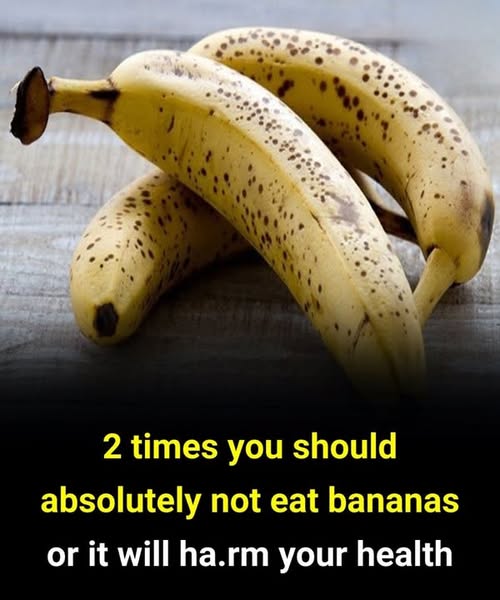Bananas are one of the most popular fruits in the world, known for their rich potassium content, natural sweetness, and convenience. However, there are certain times when eating a banana may not be the healthiest choice. Understanding these moments can help you make better dietary decisions and avoid unwanted side effects, especially if you have specific health conditions.
1. When You’re on an Empty Stomach
Although bananas may seem like the perfect morning snack, eating them on an empty stomach can actually cause problems for some people. Bananas are high in natural sugars and contain a fair amount of magnesium and potassium. When consumed first thing in the morning without other foods, they can cause a spike in blood sugar and an imbalance in magnesium-potassium levels, potentially leading to digestive discomfort or fatigue later in the day. It’s better to pair a banana with a source of protein or healthy fat for a more balanced start.
2. If You Have Certain Medical Conditions
People with kidney disease, diabetes, or migraines should be cautious about their banana intake. Bananas are high in potassium, which can be harmful for individuals with impaired kidney function, as their bodies might struggle to filter out excess potassium. Diabetics should also be mindful of bananas due to their high carbohydrate content, which can spike blood sugar levels. Additionally, bananas contain tyramine, which can trigger migraines in sensitive individuals.
Disclaimer:
This article is for informational purposes only and should not be considered medical advice. Always consult with a qualified healthcare professional before making any changes to your diet, especially if you have underlying health conditions. While bananas are healthy for most people when eaten in moderation, certain situations may call for caution.
